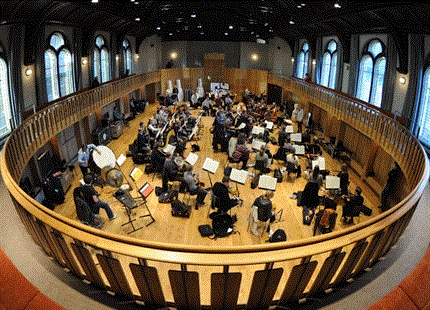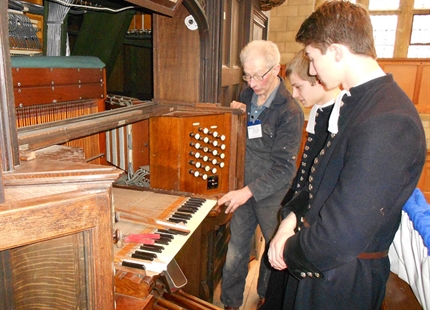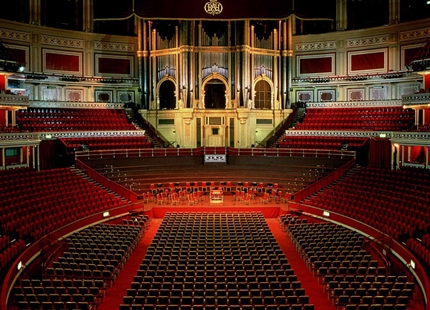
Humidification & humidity control of concert halls & organs
Large pipe organs in concert halls and churches need to have the humidity maintained within their organ chambers in order to preserve the dimensions of the wooden sound boards and sliders.
If the air in the organ chamber becomes dry then it will suck moisture from the surrounding wood causing it to suffer dimensional changes. This can cause the sliders to warp and stick, resulting in an unresponsive instrument. If the sound boards change shape then the air will not resonate correctly and the organ will become out of tune.
By maintaining 55% relative humidity (%RH) within the organ chamber the wood is in equilibrium with the air and it maintains its moisture content and shape.
This is often achieved with small capacity steam humidifiers that feed low levels of steam into an organ chamber either directly through a fan unit or via a steam pipe.
As well as the organ chamber, the main auditorium and stage area within a concert hall also require humidity control. The preservation of wooden furniture and flooring as well as the musicians’ instruments within the hall requires a level of around 50%RH.
The stage area also needs the humidity maintained in order to provide optimum conditions for the singer’s voice. If the atmosphere is too dry then the vocal performance will suffer as the singer’s nose and throat dry.
Benefits of Condair humidification in concert halls & organs include:
- Extensive experience around the world with many concert hall projects
- Comprehensive product range to precisely meet customers' requirements
- Ability to provide innovative custom solutions for unusual applications
- Low energy systems to reduce operating costs and improve humidity control
- Low maintenance solutions to reduce on-going service requirements
- Comprehensive service of advice, design, supply, installation, commissioning, maintenance and spares supply direct from the manufacturer
- Royal Albert Hall, UK
- Sydney Opera House, Australia
- Alexandra Palace, UK
- The Royal Opera House, UK
- Opera North's Howard Assembly Room
- Christ's Hospital school, UK
Other industries where Condair delivers vital humidity control
Opera North sings Condair's praises
A Condair CP3 steam humidifier is protecting the valuable orchestral instruments and wooden décor at Opera North’s Howard As...
Read moreCondair CP3 keeps Christ's Hospital organ in tune
A Condair CP3 steam humidifier ensures the organ at Christ's Hospital resonates correctly and remains in tune whatever the w...
Read moreCondair evaporative humidification at Jaguar Land Rover
Evaporative humidifiers maintain the humidity in the rolling road test cells at Jaguar Land Rover, Solihull, UK.
Read moreHumidification of the Royal Albert Hall's Organ
A resistive steam humidifier has been installed at the Royal Albert Hall to maintain the organ chamber's humidity.
Read more



